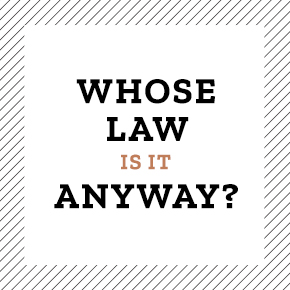Despite the increased emphasis on diversity and inclusion within the legal field over the past several years, the legal profession remains one of the least diverse professions in the U.S. According to the American Bar Association’s National Lawyer Population Survey, the past decade has seen little to no growth among people of color in the law. This lack of diversity matters within the legal profession – not just for lawyers, but more importantly for the people who seek legal remedies for their justice problems. What do diversity, equity, and inclusion look like in legal academia and the legal profession? How do individual challenges for underrepresented lawyers affect the law more broadly? And how has the pandemic shaped experiences for women and women of color in the legal profession?
To answer these questions, Matthew sits down with Meera E. Deo, recent ABF Neukom Fellows Research Chair to explore how race and gender impact experiences for legal academics and legal education. Then, he speaks with Jamila M. Hall, ABF Fellow and Partner at Jones Day about the importance of diversity, equity, and inclusion in the law and how individual challenges for underrepresented lawyers affect the law more broadly.
Note: The American Bar Foundation is an independent, non-partisan, and non-profit research institute. Any of the viewpoints expressed during the podcasts are those of the guests, not the ABF.

